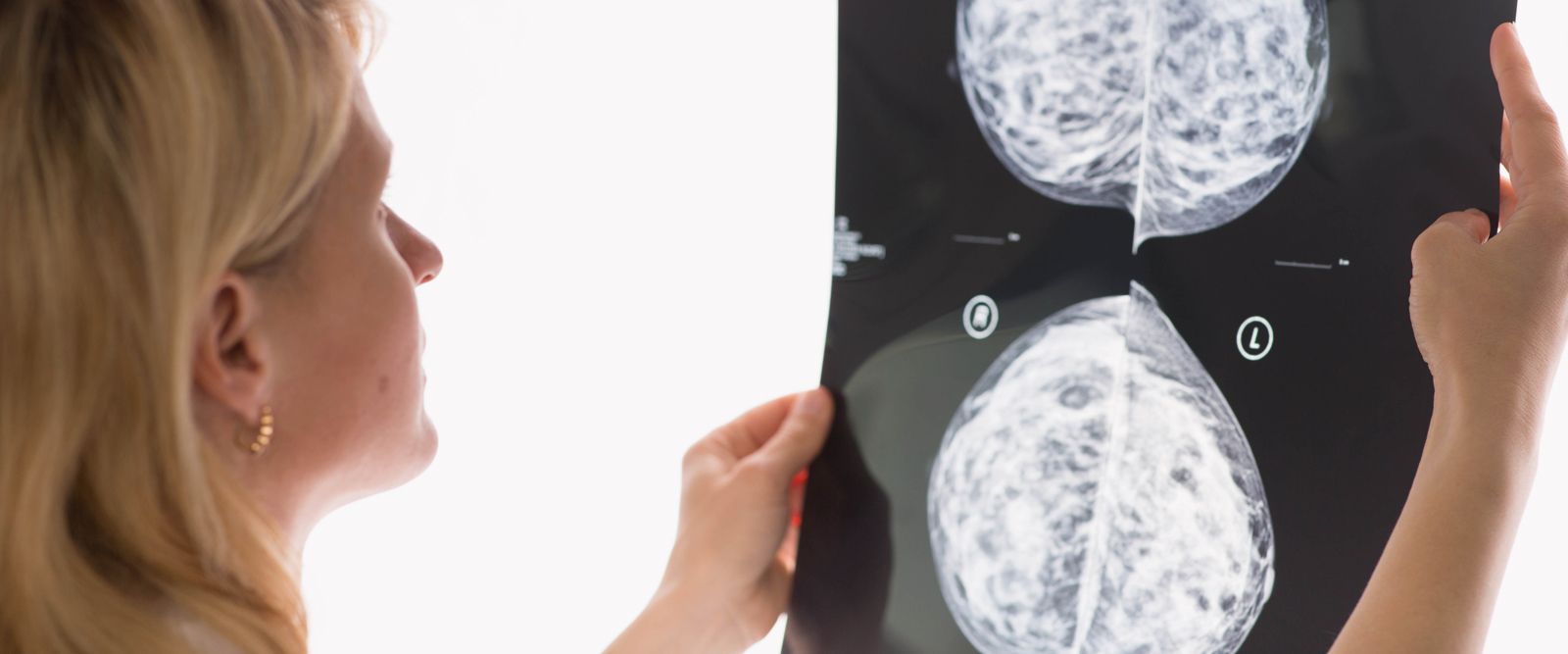Swollen Lymph Nodes and the COVID-19 Vaccine: What to Know
A vaccine reaction of enlarged lymph nodes is normal but can look suspicious on mammograms and other cancer screenings. An expert explains how to avoid unnecessary worry.


If you have received a COVID-19 vaccine, you may have experienced a reaction such as a sore arm, a headache or fatigue — normal signs that the body is mounting an immune response. But one immune reaction can end up causing unnecessary confusion and worry. After the COVID-19 vaccine rollout, radiologists began to note swollen lymph nodes in the armpit, or axilla, on the mammograms of some recently vaccinated women. Enlarged nodes also have been evident on chest CT scans to detect lung cancer and on other imaging tests.
Ordinarily, this finding can lead to the need for additional tests or even biopsies to make sure it’s not a sign of cancer. Swollen armpit nodes could mean that the body is reacting to cancer in the breast or that there are cancer cells from the breast that have spread to the lymph nodes, says Dr. Elise Desperito, chief of the Division of Breast Imaging at NewYork-Presbyterian/Columbia University Irving Medical Center.

Dr. Elise Desperito
Nevertheless, “Enlarged lymph nodes after the COVID vaccine are a normal response of the body,” says Dr. Desperito, who is also an assistant professor of radiology at Columbia University Vagelos College of Physicians and Surgeons. “They will enlarge temporarily and return to their normal size after several weeks.”
Lymph nodes, small beanlike structures throughout the body, are an essential part of the immune system. “They contain lymphocytes, or white blood cells, which help fight infection and disease,” says Dr. Desperito.
The nodes tend to swell when they are reacting to a bacterial or viral infection. Because COVID-19 vaccines prompt an immune response, they can cause a similar reaction. The swollen glands typically appear on the side of the body where the vaccine was administered, such as the left armpit nodes in patients who have gotten the shot in their left arm.
It’s not uncommon for vaccines to cause swollen lymph nodes after vaccinations. This has occurred after other immunizations, such as the H1N1 influenza vaccine. “But with COVID, it’s happening on such a large scale that more people have experienced the reaction and a public conversation is needed,” says Dr. Desperito.
How can you make sure your cancer screenings don’t lead to an unnecessary cancer scare or tests? “Talking to your healthcare provider is the first, most important step,” says Dr. Desperito. She suggests the following measures:
1. Schedule Appointments Wisely
Right now, many people are trying to schedule both their COVID-19 vaccine and cancer screenings, particularly those wanting to catch up on routine tests they put off due to the pandemic. “We don’t want vaccination to be delayed, and we don’t want people’s cancer screenings to be delayed,” says Dr. Desperito.
If you have the choice in scheduling appointments, schedule your imaging tests before you receive a COVID-19 vaccine, she advises. Then you can avoid having swollen lymph nodes muddy your test results.
“Enlarged lymph nodes are visible as early as one day after vaccination, and they can remain enlarged for a month or more,” says Dr. Desperito. (Keep in mind that while you may stop feeling a swollen lymph node, which can feel like a lump in your armpit, it may still be visible on a scan.) Call your doctor if you still feel a swollen lymph node after six weeks following your vaccine.
2. Alert Providers to Your Recent Vaccination
If you do get your COVID-19 shot before you get a cancer screening, make your providers aware of your vaccine status so they can manage your care appropriately.
When you have your cancer screening exam, tell the radiologist or technician when you had the first vaccine shot (and the second, if you received one) and in which arm. These factors should be in the report that your doctor receives.
If your test shows swollen lymph nodes, your doctor may decide to order another imaging test a few weeks later and/or watch you closely before ordering a more invasive test. For instance, if a woman had her vaccine in her left arm and enlarged lymph nodes are identified in the left axilla on her mammogram or ultrasound, a clinical exam by the patient’s healthcare provider in 4 to 6 weeks, if needed, is the recommended follow-up.
But “if swelling persists, your doctor may say, ‘I want you to go get an ultrasound and get it checked out,’” Dr. Desperito says.
3. Schedule Scans Carefully During and After Cancer Treatment
If you are currently being treated for cancer or have recovered from it, you may be getting advanced imaging, such as CT scans and PET scans, periodically to see if it has spread to other organs or how you are responding to treatment, or to check for recurrences. Ask your oncologist if it is possible to coordinate them with your vaccine appointment, Dr. Desperito says.
If you’re offered the vaccine and you have tests coming up soon, you can request to have the shot administered in a different body part. For example, if your breast cancer is or was in the left breast, ask to get the vaccine in your right arm or even your thigh muscle, Dr. Desperito advises.
Talk to your doctor if swollen nodes appear on an imaging test after you got the vaccine. “If you had a CT scan and it shows enlarged lymph nodes, a targeted ultrasound can be done of the axilla to see if they’ve gone back to normal,” Dr. Desperito says. “You may not have to get a repeat CT scan. There are other ways to check on it.”
4. Prioritize Your Health
Scheduling your cancer screenings or follow-up imaging tests is very important. “We know that many people have had to delay these screenings because of the COVID pandemic,” Dr. Desperito says. “Generally, the earlier we find a cancer, the more treatable it is. Very simply, finding cancer early saves lives.”
Additional Resources
To learn about radiology diagnostic tests at NewYork-Presbyterian, visit nyp.org/radiology.

